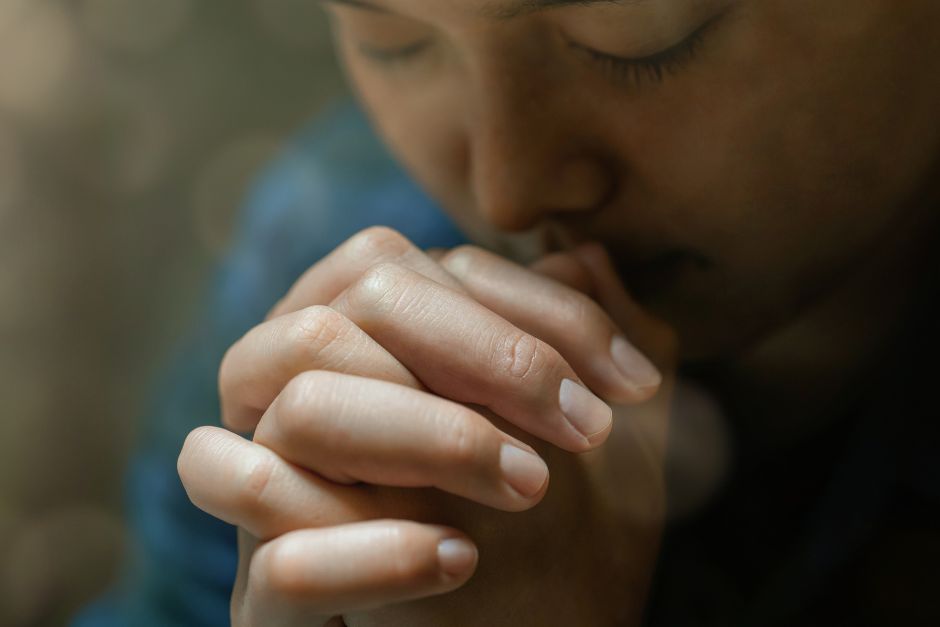 As Christians, we often find ourselves wrestling with a profound tension: How do we live out Christ’s call to selfless love while also caring for our own well-being? Perhaps you’ve felt the ache of this dilemma—wondering if saying “no” to another request makes you selfish, or if sacrificing your time and energy yet again will leave you drained and resentful. Balancing the need for personal boundaries with the Christian call to love as Christ loved can feel like walking a tightrope, but it’s a journey many of us are walk together.
As Christians, we often find ourselves wrestling with a profound tension: How do we live out Christ’s call to selfless love while also caring for our own well-being? Perhaps you’ve felt the ache of this dilemma—wondering if saying “no” to another request makes you selfish, or if sacrificing your time and energy yet again will leave you drained and resentful. Balancing the need for personal boundaries with the Christian call to love as Christ loved can feel like walking a tightrope, but it’s a journey many of us are walk together.
The Nature of Christian Love
At its heart, Christian love is rooted in the self-giving love of Jesus Christ. St. Paul writes in Philippians 2:3-4: “Do nothing out of selfish ambition or vain conceit. Rather, in humility value others above yourselves, not looking to your own interests but each of you to the interests of the others.” This teaches us to prioritize others, to serve without expecting anything in return.
However, Christ’s love is also truthful and discerning. His love healed, uplifted, and corrected. It was not blind to the sins or manipulations of others, nor did it enable unhealthy behaviors. He walked away from situations that did not align with His mission, teaching us the value of intentionality in our relationships.
What Are Personal Boundaries?
Boundaries are limits we set to protect our physical, emotional, and spiritual well-being. They are not walls to shut others out but guidelines to ensure healthy and respectful interactions. Personal boundaries help us:
Protect Our Capacity to Serve: When we overextend ourselves, we risk burnout, which diminishes our ability to serve others effectively.
Uphold Human Dignity: Setting boundaries communicates that we value ourselves as children of God.
Foster Healthy Relationships: Boundaries help prevent resentment, dependency, or enabling harmful behavior in others.
Misconceptions About Boundaries in the Christian Life
Some may feel that setting boundaries contradicts the sacrificial nature of Christian love. But boundaries, when applied rightly, are not selfish; they are an act of stewardship. They ensure that our love and service come from a place of genuine willingness rather than compulsion or exhaustion.
Consider Jesus’ own life. He often withdrew from the crowds to pray (Luke 5:16). He set boundaries by prioritizing His relationship with the Father and His mission. When faced with demands, He chose actions aligned with His purpose, demonstrating that boundaries can coexist with profound love and sacrifice.
Practical Struggles and Examples
Let’s explore some real-life scenarios where discerning between selfless love and setting boundaries can feel especially challenging:
The Overburdened Parent
Imagine a parent who is constantly asked to volunteer for school events. They love their child and want to support their education, but the endless commitments leave them drained and irritable at home. Setting a boundary—like committing to only two events per month—ensures they can give their best to both their family and their volunteer work.
The Friend Who Always Says “Yes”
A friend may feel obligated to help every time they are asked, whether it’s babysitting, running errands, or lending money. While their intentions are good, they might find themselves overwhelmed or financially strained. Saying “no” to certain requests allows them to serve others with a joyful heart rather than out of guilt.
The Employee Who Feels Exploited
Consider an employee who regularly works late because their boss assumes they will always stay to finish extra tasks. They want to be a good witness of Christian diligence, but their health and family life are suffering. Setting boundaries, like leaving work on time unless it’s an emergency, reflects stewardship of their well-being without neglecting their duties.
Caring for a Difficult Family Member
It’s often hardest to set boundaries with loved ones. For example, someone may have a relative who constantly demands attention and financial help but refuses to address their own destructive habits. Offering support—such as paying for counseling instead of giving cash—balances love with accountability.
Practical Steps to Balance Boundaries and Selfless Love
Discern Your Limits Through Prayer
Seek God’s guidance in understanding where to draw the line. Ask for wisdom to know when to say “yes” and when to say “no.”
Examine Your Intentions
Are you setting a boundary out of fear, pride, or self-preservation? Or is it a means to honor God’s will and protect the gifts He has given you?
Communicate Boundaries with Love
Be honest and kind when expressing your limits. Let others know that your boundaries are not a rejection of them but a commitment to healthier interactions.
Rely on God for Strength
There will be times when loving selflessly challenges your boundaries. In such moments, lean on God’s grace to discern whether to stretch beyond your limits or stand firm.
Reflect on Christ’s Example
Jesus’ love was both sacrificial and discerning. Reflect on how He balanced moments of giving with times of retreat and rest.
When Boundaries Honor God
Setting boundaries becomes an act of love when it allows us to:
Protect our vocation and responsibilities (e.g., a parent prioritizing family over excessive work obligations).
Prevent enabling harmful behavior in others, encouraging them to grow in virtue.
Offer service joyfully rather than resentfully, maintaining the purity of our intentions.
The Call to Love Wisely
Balancing boundaries with selfless love is not about finding a perfect formula but about growing in wisdom and holiness. It requires us to be honest with ourselves and others while remaining open to God’s call in each moment. As St. Augustine reminds us, “Love, and do what you will.” This does not mean license but rather an invitation to let love—authentic, Christ-like love—guide all our actions, including the boundaries we set.
In striving for this balance, we reflect the beauty of a life ordered toward God, one that loves others deeply while honoring the dignity and worth He has placed within us. May we always seek His grace to navigate this delicate tension with faith, hope, and charity.




